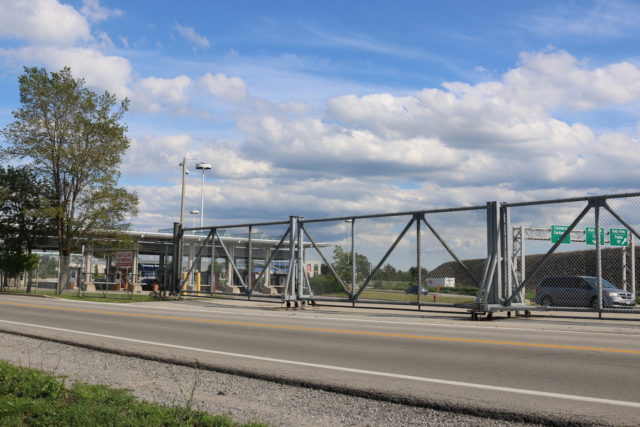Ottawa, Ontario
September 29, 2017
Government of Canada
Members of the Ad Hoc Intergovernmental Task Force on Irregular Migration met yesterday for the fourth time, as part of ongoing discussions to address the influx of asylum seekers entering Canada at irregular border crossings.
Federal Minister and Task Force Chair, Marc Garneau, was pleased to report on the progress made since the last meeting on September 1. He reiterated the continuing collaboration across governments to manage the influx and added that all of us remain committed to orderly migration and ensuring the safety of all Canadians.
Minister of Immigration, Refugees and Citizenship Canada, Ahmed Hussen, noted that this is a global issue and that many countries, not just Canada, are facing similar challenges. However, Minister Hussen also highlighted that since the expansion of our operations in Montreal on September 5, persons’ eligibility interviews are now scheduled within days, rather than weeks or months.
Minister of Public Safety, Ralph Goodale, noted that the government officials remain alert to any situations in which illicit activities, such as human trafficking, could be taking place and that we take the plight of vulnerable persons very seriously.
Members of the Task Force agreed that further collaboration with the U.S will be essential to identify effective multipronged solutions to the current situation.
The Government of Quebec informed the Task Force on the housing process put in place to accommodate the migrants. Quebec Minister of Immigration, Diversity and Inclusiveness, Kathleen Weil, noted that the number of individuals being housed temporarily by the Government of Quebec has reduced significantly. They also discussed the proactive measures being taken to integrate the large number of school-age migrants in a short period of time.
Member of Parliament, Pablo Rodriguez, updated the Task Force on his successful visit to Los Angeles, where he met with over two dozen stakeholders from the diplomatic network, non-governmental organizations (NGO), media, community groups and municipal and state level officials. The initial focus was on organizations that interact directly with citizens of the Central American countries that will be affected by TPS expiry later this year – El Salvador, Honduras and Nicaragua. While in Los Angeles, Mr. Rodriguez advocated strongly to correct misinformation on Canada’s immigration system to key leaders who will pass on the message to their populations.
Task Force members reported on the Government of Canada’s ongoing outreach efforts in both Canada and the U.S., to inform people and provide the facts about Canada’s asylum system. Work is continuing with the Embassy and consulates in the US – among other stakeholders – to ensure that all people thinking about making an asylum claim in Canada, regardless of their current status in the United States, understand Canada’s laws. Just recently, Minister Hussen attended a round table in New York on September 18, where he met with key members of organizations serving the immigrant community in New York, a part of outreach efforts in the United States.










